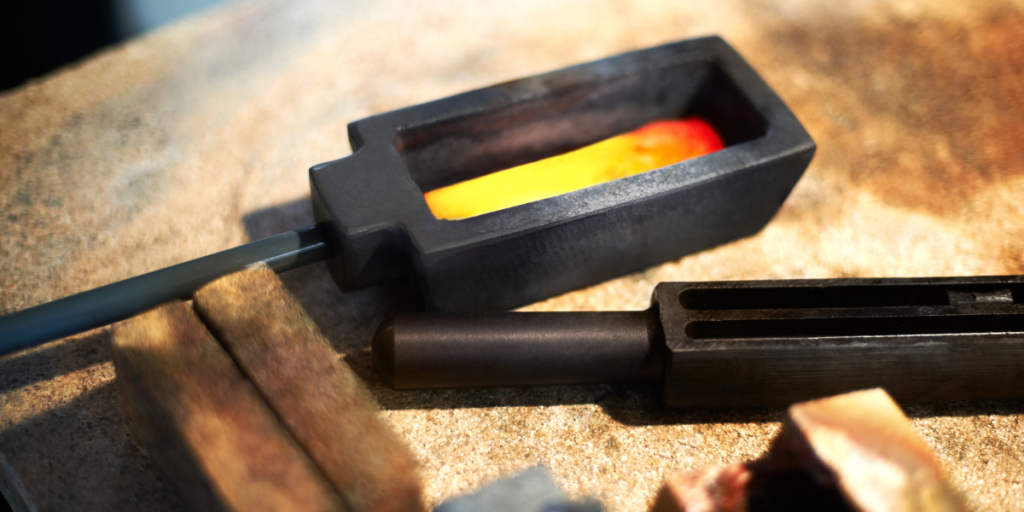

If you’ve ever wondered if you may have hidden treasures in your scrap metal, look no further than gold recycling. By refining scrap metal to extract precious metals like gold, not only do you contribute to a more sustainable future, but you also increase your financial returns. In this article, we’ll explore the benefits of recycling gold, what the process of refining gold looks like, and how to maximize profit with recycled gold. Uncover the secrets of gold recycling and take the first step towards a more profitable and environmentally friendly business today.
The Benefits of Recycling Gold
When it comes to recycling gold, the benefits extend far beyond just environmental sustainability and financial gain. Understanding the advantages of gold recycling can help you make informed decisions when it comes to refining scrap metal.
- Environmental Protection: Mining gold has a serious environmental impact, including lessening habitat destruction and pollution. Recycling reduces the need for mining which preserves natural ecosystems.
- Resource Conservation: Gold is a finite resource. Recycling helps extend the life of existing gold supplies, ensuring that this precious metal remains available for future generations.
- Energy Savings: The process of recycling gold generally requires less energy compared to extracting gold from ore, which can lead to reduced carbon emissions and a smaller overall carbon footprint.
- Economic Benefits: Recycling gold can create jobs in the recycling and manufacturing sectors. It also supports the circular economy, where materials are reused and recycled rather than discarded.
- Reduced Waste: By recycling gold from old electronics, jewelry, and other items, we can significantly decrease the amount of electronic and industrial waste that ends up in landfills.
- Lower Costs: For manufacturers, using recycled gold can be more cost-effective than sourcing newly mined gold, especially as the price of gold fluctuates.
The Process of Refining Gold
Refining gold is a complex process that involves several steps to ensure that the metal is purified and ready for reuse. The first step in the process is to melt down the scrap gold in a furnace to separate it from any impurities. Once the gold is melted, it is then poured into molds to create ingots or bars.
The refined gold is then put through a series of chemical treatments to further purify it. This can involve using acids or other chemicals to dissolve any remaining impurities in the gold, leaving only pure, refined gold behind.
Overall, the process of refining gold is a meticulous one that requires careful attention to detail and precision. By following these steps, scrap gold can be effectively reclaimed and put to good use in a variety of industries.
RELATED: Our Gold Recycling Process in Photos
How to Get Started in Gold Recycling
Recycling gold requires tools such as a crucible, a pouring mold, a flux mixture, and a furnace for melting the gold. Without the right equipment, it can be nearly impossible to effectively refine scrap gold into a usable form. One of the easiest ways to do this without investing in the expensive equipment yourself is to sell your lot to a gold refinery like Manhattan Gold & Silver.
Maximizing Profit with Recycled Gold
By following these steps and using a trusted refinery, businesses can ensure that their gold recycling efforts are not only successful but also profitable.
In a world where sustainability and profitability often feel like opposing forces, recycling gold offers a unique opportunity to align these priorities. By refining scrap metal to extract gold, you not only contribute to a more environmentally friendly future but also increase your financial returns. If you’re a business owner looking to maximize profit, exploring gold recycling is a step worth taking. As you delve into this transformative process, remember that every ounce of recycled gold holds the potential for a brighter tomorrow.
